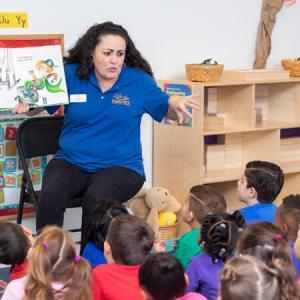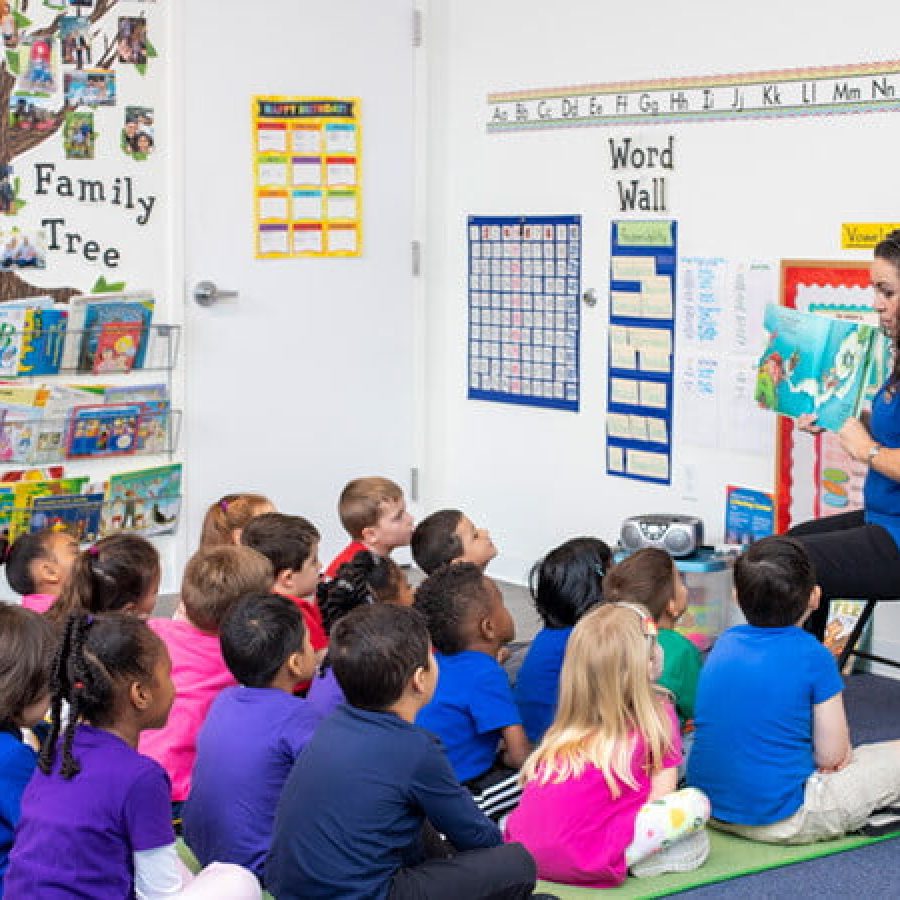Nowadays, learning to read starts before kids enter kindergarten. A major part of this particular 
Here are a few engaging activities you can do to prepare your child to be a successful reader. Most of the activities are already being reinforced inside your kids Amazing Explorers classroom. We have learned through constant repetition, we can expand children’s knowledge even further through experiences.
JUST READ
Children are NEVER too young to be read to. In fact, reading to babies at birth exerts a positive effect on brain development. It also promotes a strong bond and can help with misbehaviors. There is something so calming and comforting about cuddling up with your little one with a book. Here are a few ways you can set an example when it comes to reading.
- Show them how to handle a book. To understand how to follow words on a page, point to each word as you read so little ones can learn that reading is done from left to right.
- Read with “fun” in your voice. Use different voices! Add humor and expression. Ham it Up!
- Let your child pick the book. Give them some ownership in the reading process.
- Ask questions out loud. As adult readers we tend to ask questions in our mind as we read. Model this behavior out loud for your child. Even model answering the question if you discover it while reading. Reading is all about comprehending so we have to model how we think through a book by doing it for kids to hear.
- Let them SEE you read. Not only should you be reading to your child but also they should see you reading too.
- Books should be EVERYWHERE! Books do not have to sit on a bookshelf. Put them in the car, in a basket in the bathroom, take them to restaurant, or give them a place in every room in your home.
Vocabulary Activities
It is important for children to have a print rich environment to develop language. Words and print are everywhere which makes it easy to incorporate in your everyday lives. It’s also important when learning words to take what children hear and help them visualize it. Check out these activities to enrich your child’s vocabulary.
Picture/Word Slap
- Pick 2-4 words you want your child to work on. These can be words used throughout the day for toddlers and sight words for preschoolers.
- Write each word on a notecard or use a picture for toddlers.
- Put each notecard by an exit of your home ( front door, garage door, etc.). You can either put the cards on the wall by the door as your are coming, going, or both.
- Whenever you leave or come home have your child slap each notecard.
- For young toddlers after the slap the picture have them use american sign language using the picture card.
- For older toddlers have them say the word that is on each picture card.
- For preschoolers have them read and say the word of each card.
- Change out the pictures/words as your child becomes fluent.
Categories
- Choose a category- person, place, or a thing. You can pick a specific word related to an activity you are doing in the moment.
- Make a long string of words that belong in the category by taking turns adding a word each. Each word may only be said once.
- Once you run out of ideas choose a new word.
Bonus: Stay motivated by writing down the record of how many words in each category and try to beat it.
Bump it Up: Using words from one of the categories; first say a list of 4-5 words belonging to that category. Then add one word that doesn’t belong to that category. Your child must figure out which word doesn’t belong.
What Am I?
- Find an object in the room and describe the object to your child while the guess it.
- Use riddle phrases such as I am long, I am shiny, I am used to eat with, I hold liquids, What am I? (spoon)
- Give as many clues as you need until they guess the object.
Learning isn’t just fun—it’s essential.
At Amazing Explorers, we believe that tomorrow’s great minds are in today’s classrooms. That’s why our innovative learning programs are specifically designed for the 21st century learner and aimed towards giving them the tools they need to successfully deal with the challenges of the future.
Is your child ready for adventure? Schedule a tour with us at one of our amazing locations. We’d love to show you how we foster a nurturing environment for the great minds of the 21st century.


